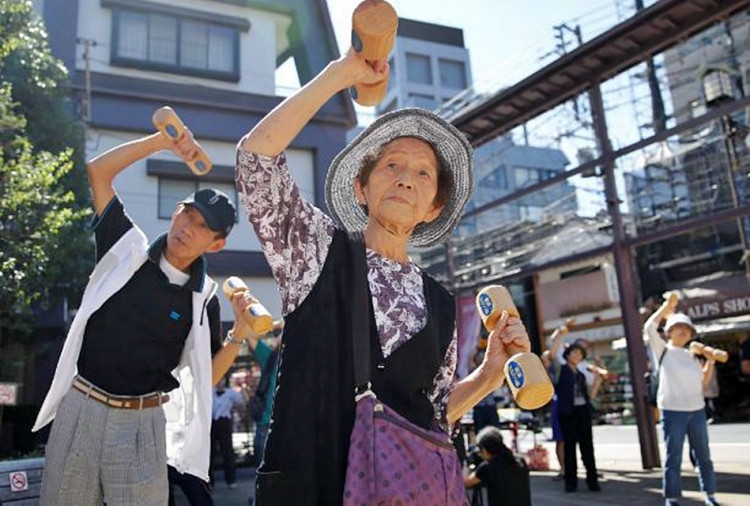Prime Minister Shinzo Abe reaffirmed his government's intent to increase the national consumption tax to 10 percent in October 2019 as planned.
The increase to 10 percent is the second stage of a two-stage hike from five percent. The current consumption tax stands at eight percent.
The government said the tax hike is needed to finance rapidly rising medical and nursing care costs being incurred by Japan's growing elderly population. One in three Japanese is over 60 years old, giving Japan the highest proportion of elderly citizens among all the world's countries.
Demographers say Japan has become a "super-aging" society in both its rural and urban areas. People aged 65 and older comprise a quarter of its total population today. This percentage will reach one-third by 2050.
Part of the expected revenue from the tax rise will also go to expanding child-care support, including preschool education. Abe pledged to take this action while campaigning for the LDP during the 2017 House of Representatives election in the National Diet.
Abe was prompted to affirm the tax increase at an extraordinary Cabinet meeting. The consumption tax increase was postponed twice before due to fears it might harm the economy and crimp consumer spending.
These fears are not unfounded. The three percentage-point consumption tax increase in 2014 likely triggered a brief recession. Japan increased the consumption tax from 3 percent to 5 percent in April 1997. The tax was increased to the current 8 percent in April 2014 under Abe.
Abe said he will make "all-out efforts and take all measures" to prevent the tax hike from having a negative impact on the economy as it did in 2014. He apparently believes that Japanese citizens at this time can bear with the tax hike because of the strengthening Japanese economy.
Abe claims his "Abenomics" policy based on monetary easing, fiscal stimulus, and structural reforms is responsible for the economy's steady growth and the creation of more new jobs. He also believes now is the time to transform Japan's out-of-date social welfare system for "all generations." His apparent aim in doing so is to ensure both elderly and young people feel secure about their lives.
Chief Cabinet Secretary Yoshihide Suga said Abe's announcement is aimed at advancing discussions on possible countermeasures to any economic slowdown that might be triggered by the consumption tax hike. The government needs to develop countermeasures ahead of crafting its draft budget for the next fiscal year.
Suga repeated the government's position the tax hike will be postponed in the event of a crippling economic crisis similar to the one caused by the 2008 collapse of U.S. investment bank Lehman Brothers Holdings Inc. The Lehman collapse is widely regarded as the root cause of the Great Recession of 2008 that savaged world economies.






